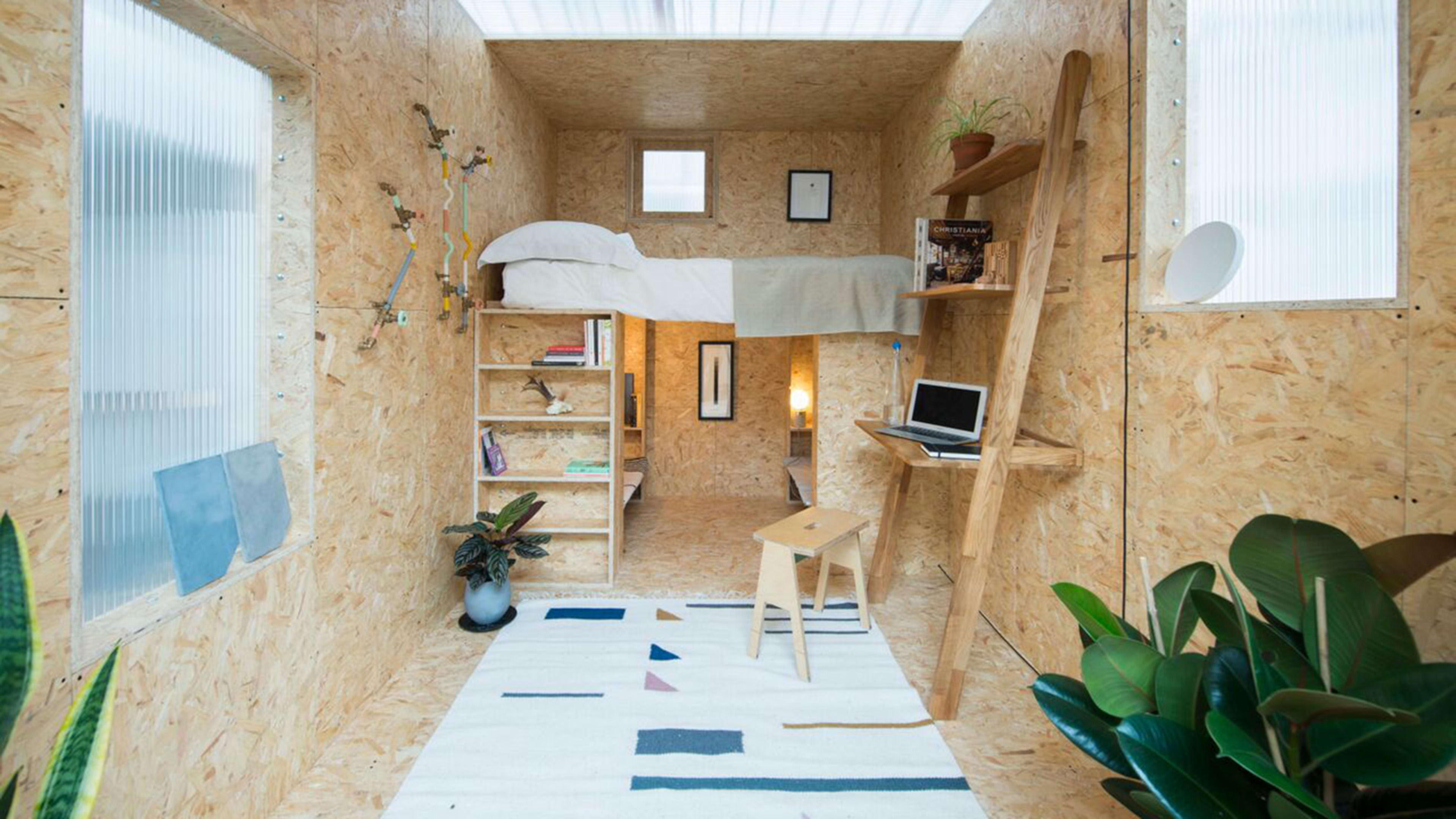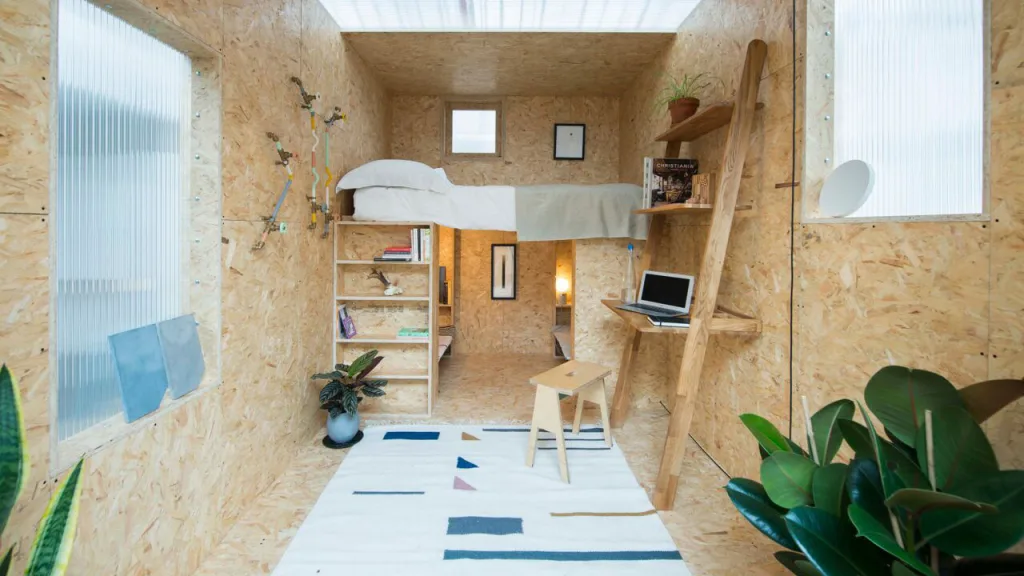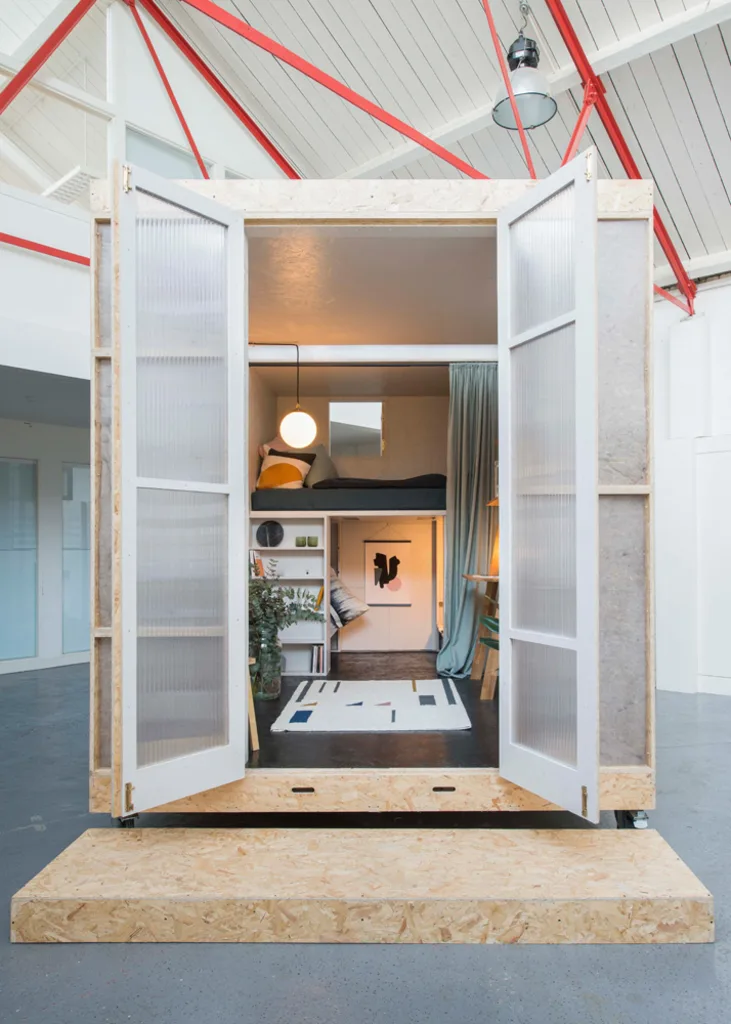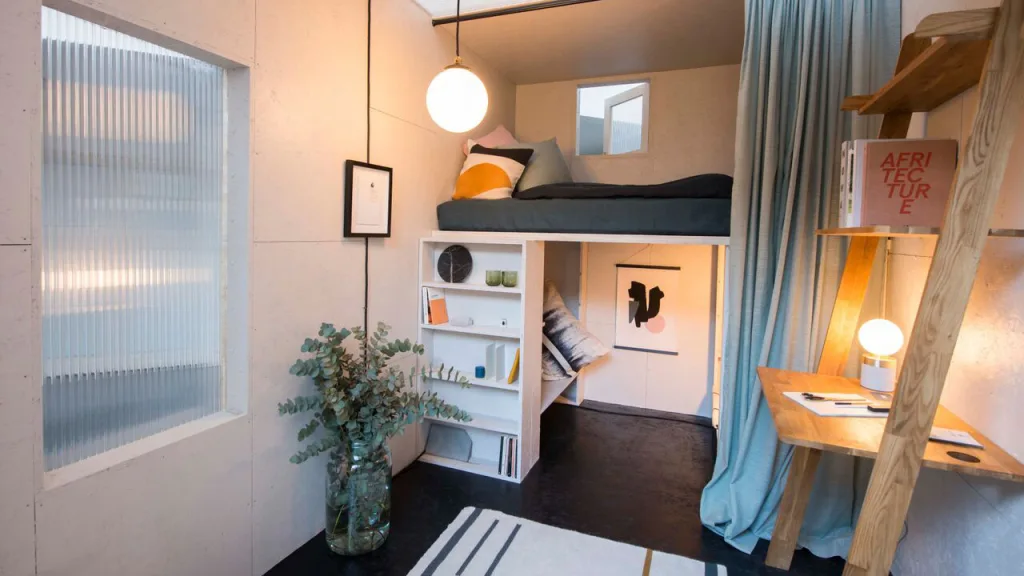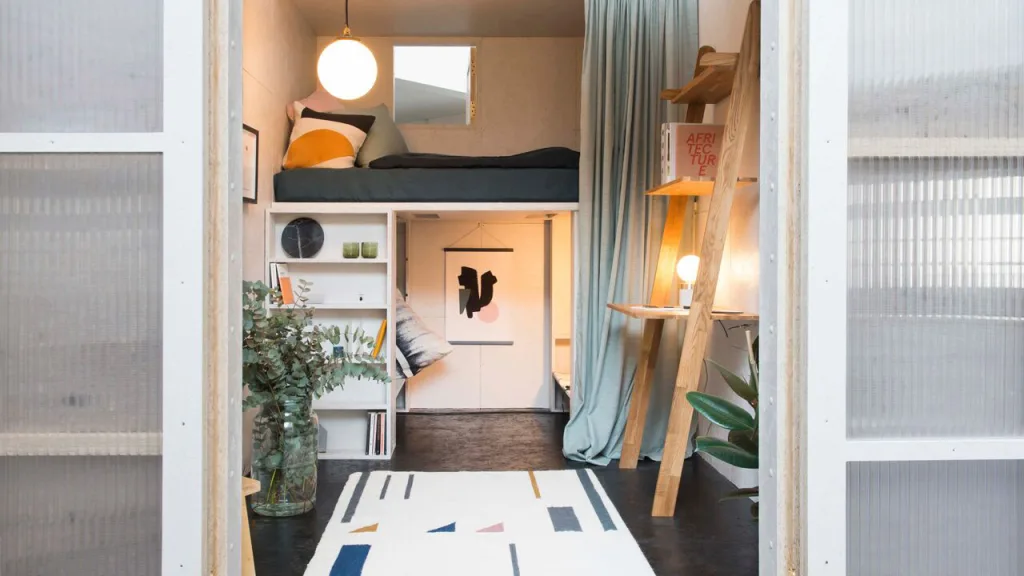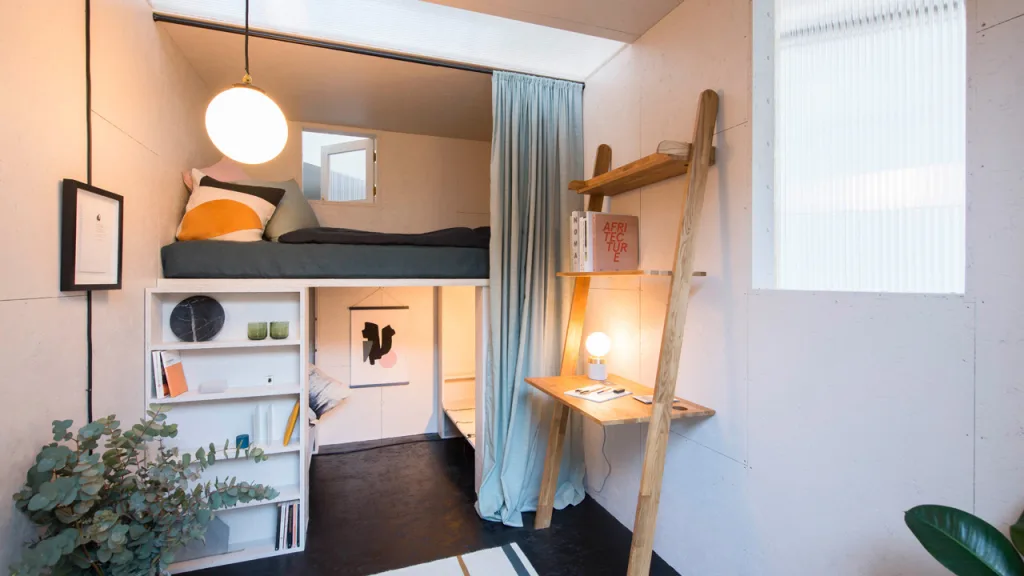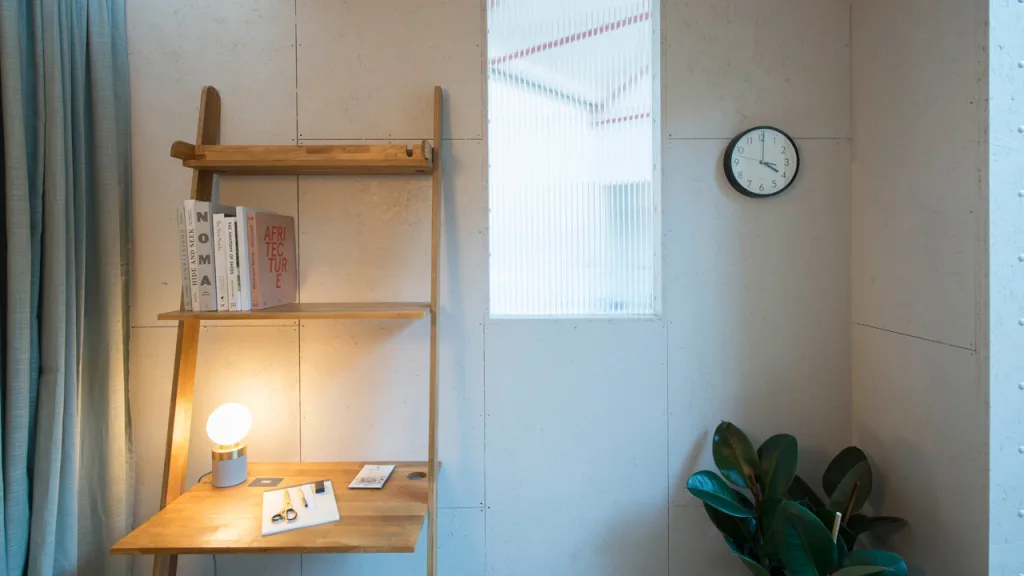Three years ago, as a 26-year old struggling to find an affordable place to live in London–but, as a young professional, earning too much for subsidized housing–Tim Lowe embarked on an experiment. For four months, he would try living in whatever housing he could find for less than £500 (around $800 at the time) in Central London.
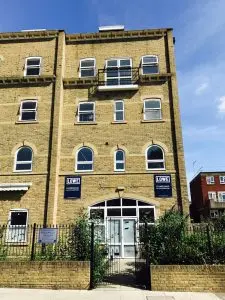
Lowe founded a startup, Lowe Guardians, that now converts empty buildings into clean, safe, desirable, and cheap housing. For building owners, having temporary residents provides free security and qualifies them for a tax break. For “guardians,” it’s an affordable way to live in a central part of the city. “It opens up and unlocks spaces that people wouldn’t otherwise be able to afford,” says Lowe.
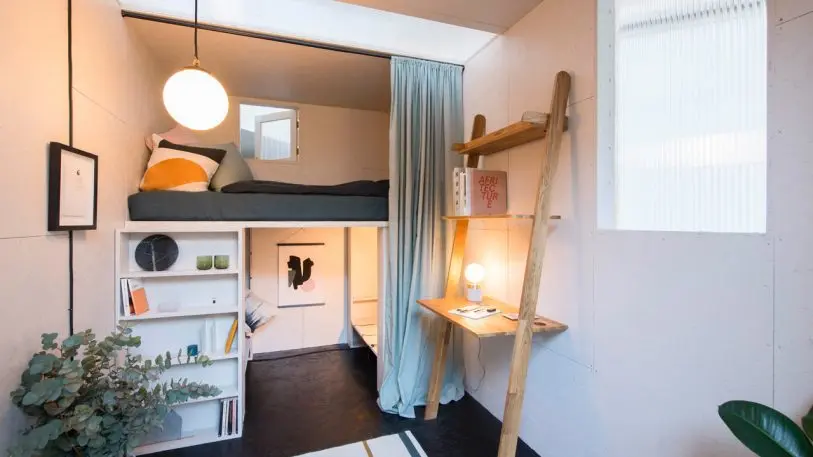
The startup worked with designers at Studio Bark to create a Shed, a simple, affordable structure that can go inside a larger space to create a bedroom and private living area for each guardian. It’s is now beginning to use the structures inside the buildings it works with. The kit takes a day to build, and was designed for non-experts, so guardians can construct the unit themselves. When the property is later developed for another use, each Shed can be disassembled and reused elsewhere. The next version of the design, in development now, will include private bathrooms and kitchens. (Today, there are shared kitchens and bathrooms available in the vacant buildings.)
The company tries to fit as many people as it comfortably can into each building to make the most use of space, while meeting safety standards; one building, for example, has 60 guardians inside. It currently works with 180 guardians, and is looking for more vacant space.
“London is a big city, but there is a high percentage of vacant space, and there’s also a high percentage of space that could be used much better . . . we’re about using space better,” he says. “We understand that we need more housing, but we also believe that there’s a lot of real estate at the moment which is underused and can perform much better.”
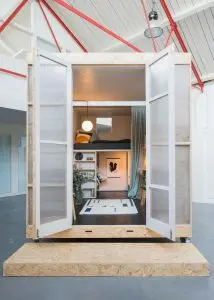
Lowe argues that having high-quality accommodations inside is also better for owners. “Our viewpoint is that if we have people who are happy and respect the space they’re in, the buildings get much better looked after,” he says.
Guardians have to move if the property owner decides to develop–ironically, the land is often used to build luxury housing. But the startup sees guardianship as a solution that can help at least temporarily as the government and market struggles to solve some of the underlying challenges causing the housing shortage.
“It’s not the solution,” he says. “We’re very pro-development, and pro building the right type of housing. I feel quite passionately that our generation–the millennial generation, or whatever you want to call it–has been cut off from that.”
Recognize your brand’s excellence by applying to this year’s Brands That Matter Awards before the early-rate deadline, May 3.
